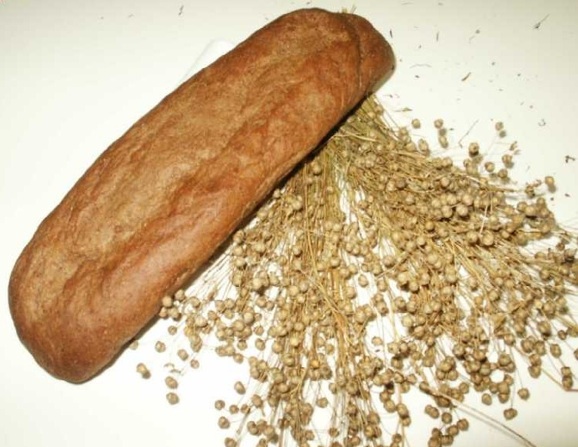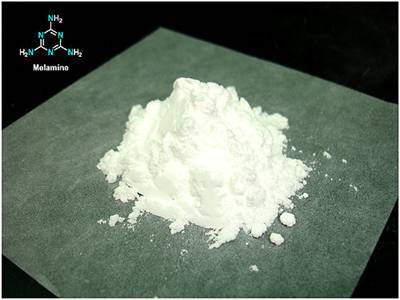Flax Allergy
 It is so important to know where your flax is coming from and that it is not being processed in a facility with Gluten or environmental and chemical toxins. Our flax comes from one farmer who grows only the highest quality of flax. When you begin eating flax, as you would with any new food, start with a small serving. A person who has a history of allergies should start with ¼ teaspoon or less a day for the first week. If there are no signs of allergies, gradually add more to the goal of 2-4 Tablespoons of flax seed per day. Flax seed is from the plant family: Linaceae and the Genus and specie: Linum usitatissimum; flax seed has a different taxonomic classification than peanuts, which are in the legume family.
Flax allergies would look the same as other food allergies or environmental allergies. A food allergy is the body's response to the allergen in food, which is protein(s) in the food that resist the stomach acid and digestive enzymes. These allergens then will cross from the digestive system into the bloodstream and then target organs, which causes an allergic reaction.
Symptoms of a food allergy will occur within a few minutes to an hour after eating. An allergy usually starts with itching in the mouth, difficulty breathing and swallowing. As the food goes into the digestive system, symptoms may include nausea, vomiting, diarrhea and abdominal pain. As the allergens enter the bloodstream, a person may experience hives or eczema and then asthma and anaphylaxis.If you notice any hives or swelling or shortness of breath, take a Benadryl and go to the Emergency Room right away.
It is so important to know where your flax is coming from and that it is not being processed in a facility with Gluten or environmental and chemical toxins. Our flax comes from one farmer who grows only the highest quality of flax. When you begin eating flax, as you would with any new food, start with a small serving. A person who has a history of allergies should start with ¼ teaspoon or less a day for the first week. If there are no signs of allergies, gradually add more to the goal of 2-4 Tablespoons of flax seed per day. Flax seed is from the plant family: Linaceae and the Genus and specie: Linum usitatissimum; flax seed has a different taxonomic classification than peanuts, which are in the legume family.
Flax allergies would look the same as other food allergies or environmental allergies. A food allergy is the body's response to the allergen in food, which is protein(s) in the food that resist the stomach acid and digestive enzymes. These allergens then will cross from the digestive system into the bloodstream and then target organs, which causes an allergic reaction.
Symptoms of a food allergy will occur within a few minutes to an hour after eating. An allergy usually starts with itching in the mouth, difficulty breathing and swallowing. As the food goes into the digestive system, symptoms may include nausea, vomiting, diarrhea and abdominal pain. As the allergens enter the bloodstream, a person may experience hives or eczema and then asthma and anaphylaxis.If you notice any hives or swelling or shortness of breath, take a Benadryl and go to the Emergency Room right away.
Individuals who suspect an allergy to flax should seek the advice oftheir physician. Like everything that becomes popular, a lot of flax is now coming from other countries such as South American countries and China. While this flax may be slightly cheaper for the customer, there are health concerns about this flax. Read more about flax seed safety concerns.
 Did you hear about the 2007 melamine scare with Pet food coming from China and then again with the 2008 melamine in milk powder and infant formula in China?Melamine is essentially a plastic and used to make floor tiles, fire retardant fabrics, etc and when added to feedstock and milk, melamine makes diluted or poor quality food appear to have more protein than it does. Melamine had been added to food in China since the 1990s and production of it has increased since then.
Did you hear about the 2007 melamine scare with Pet food coming from China and then again with the 2008 melamine in milk powder and infant formula in China?Melamine is essentially a plastic and used to make floor tiles, fire retardant fabrics, etc and when added to feedstock and milk, melamine makes diluted or poor quality food appear to have more protein than it does. Melamine had been added to food in China since the 1990s and production of it has increased since then.  Melamine Cyanurate contaminated pet food in 2007 and then it happened AGAIN in 2008 and was found contaminating milk powder and baby formula. Melamine was found to have caused severe kidney damage, kidney failure, bladder cancer and even death in some babies and pets. Maybe I am just over-cautious, but I wonder how this could be allowed to happen 2 years in a row?
Melamine Cyanurate contaminated pet food in 2007 and then it happened AGAIN in 2008 and was found contaminating milk powder and baby formula. Melamine was found to have caused severe kidney damage, kidney failure, bladder cancer and even death in some babies and pets. Maybe I am just over-cautious, but I wonder how this could be allowed to happen 2 years in a row? - Are there no real enforceable standards?
- Did they not learn the lesson the first time?
- Or does it simply that money is more important than life?
 This simply makes me wonder: What if the flax was mixed with melamine or some other substance on accident? I am not saying that it is, I am only saying the standards just aren't the same in other countries and testing is difficult and expensive. I think it is important to be cautious and ask a lot of questions.Will we see an increase in allergies to foods like flax because of what we don't know: how it is grown, processed and stored? This is why I believe it is SO important to know where your food is coming from. If you don't know where your food comes from, then you don't know if it has the highest nutritional value and the quality that our bodies need. This is true for anyone, but especially those with food sensitivities and allergies.
This simply makes me wonder: What if the flax was mixed with melamine or some other substance on accident? I am not saying that it is, I am only saying the standards just aren't the same in other countries and testing is difficult and expensive. I think it is important to be cautious and ask a lot of questions.Will we see an increase in allergies to foods like flax because of what we don't know: how it is grown, processed and stored? This is why I believe it is SO important to know where your food is coming from. If you don't know where your food comes from, then you don't know if it has the highest nutritional value and the quality that our bodies need. This is true for anyone, but especially those with food sensitivities and allergies. How to Eat Flaxseed
Flax Information
Flax for Diabetics
How Much Flaxseed
Weight Loss + Flax
Gold or Brown Flax
|
Share Your Flax Story







 |
|  |
| 